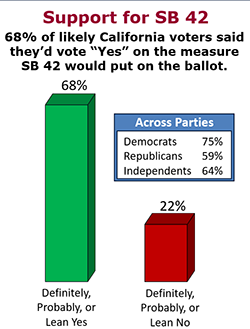Coming up with names for front groups to hide the identity
of political funding sources has almost become an art form.
Legislation that just cleared the state Senate should help
put a stop to such chicanery.
Senate Bill 52, co-authored by Sens. Mark Leno of San
Francisco and Jerry Hill of San Mateo, would require
political ads to list their top three funders. This
disclosure requirement would apply to ballot initiatives
and independent expenditures for and against
candidates.
SB 52, which advanced on a 28-11 vote, should help put an
end to the nonsense of naming campaign committees in ways
designed to intentionally confuse voters. Often they
concoct names suggesting they are something they are not.
Corporations, labor unions and other special interests try
to come up with names that suggest a grassroots movement or
imprimatur of science, parenthood, consumerism or other
reassuring endorsement.
The Leno-Hill bill would cut to the chase: It would force a
campaign ad to reveal its top three funders. It also would
end the fine-print trick by requiring such disclosure to
appear at the start of the television ad and cover at least
a third of the screen with a black background. Similarly
forthright specifications would be placed on campaign
websites and mailers, and newspaper and radio ads.
"Rather than a block of type you can't read, you'll see who
actually paid for it," said Leno.
The measure cleared the Senate with the two-thirds vote
that would be required of both houses to amend the
Political Reform Act of 1974. The outcome was curiously
close for a measure without a single listed official
opponent. Sen. Anthony Cannella of Stanislaus County was
the only Republican to vote yes.
The Assembly should move quickly to advance this important
disclosure bill to Gov. Jerry Brown for his signature.




